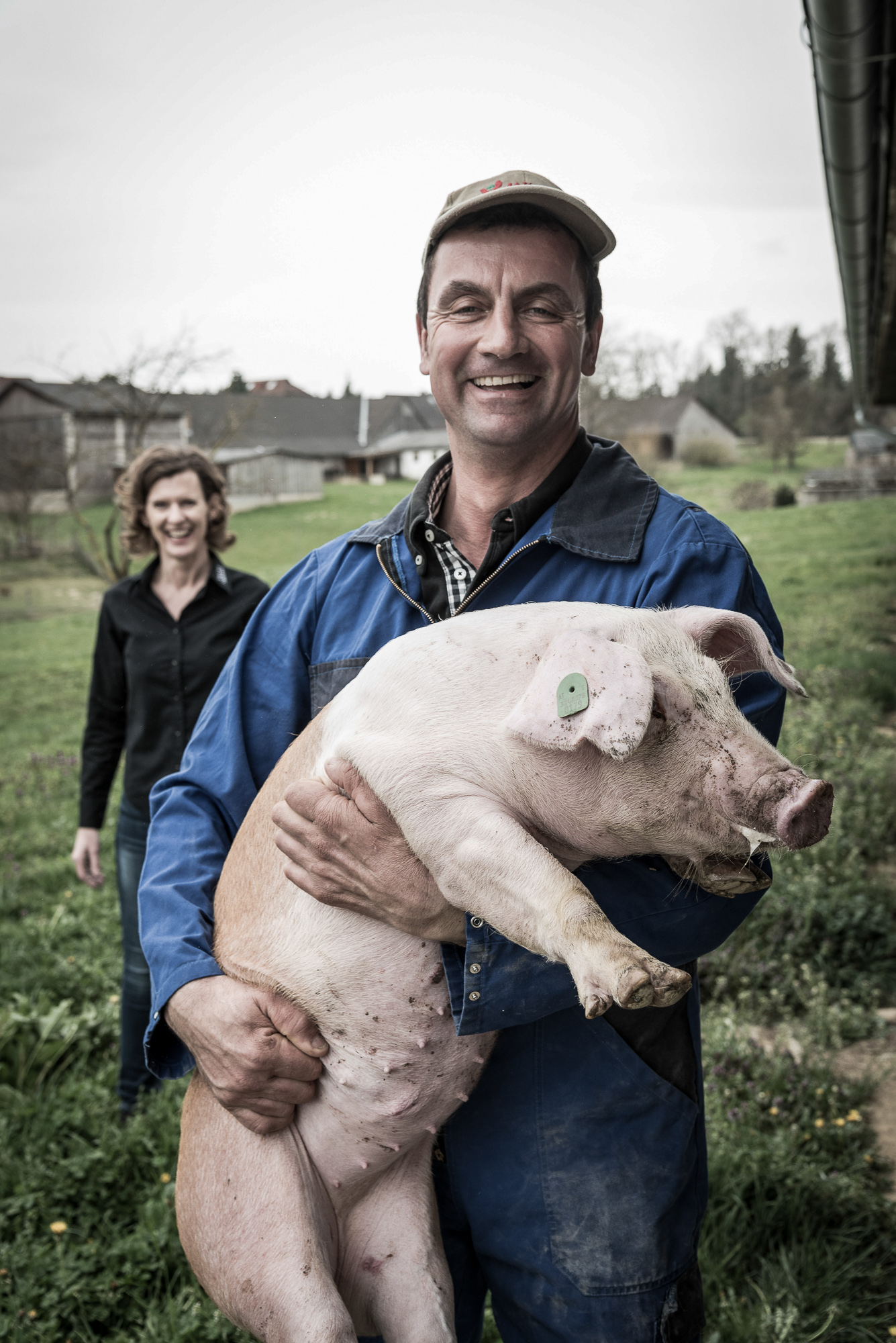Various animal welfare stable construction areas such as resting, feeding, exercise and excretion areas as well as the innovative ventilation, feeding, bedding and fertilizer systems are discussed. Research results show that these measures reduced emissions and increased animal welfare.
However, the economic viability of the animal welfare stable requires compensation for the higher construction costs and the additional working time required per fattening pig through higher product revenues. In direct marketing, the benefits for animals and the environment are communicated, while innovations are continually being worked on to make the difference in quality clear in terms of taste - on the palate.
By using alternative breeds for more taste and better meat quality, herbal pellets in feeding and distribution through various channels such as shops, farmers markets, regional shelves, home delivery and high-end catering, the company achieves success in direct marketing and animal welfare private labels.
In this podcast you will find out the practical results in short form - listen or just watch:
In this podcast episode, Priv.-Doz. Dr. Andreas Steinwidder with the passionate pig farmer and direct marketer Josef Neuhold about his business development and his special way of implementing innovations:
Further information about the Neuhold company, St. Veit in southern Styria
Website:
Videos from YouTube
- AMA-LUKULLUS for the best AMA GENUSS REGION direct marketer - youtube
- Project SaLuT – Clean air in animal production - youtube
- Austria's first low-emission animal welfare stable - YouTube
- Feces-urine separation in the pigsty - YouTube



















